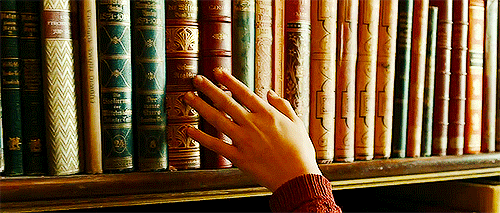Since buying my car last August, I’ve already put over 17,000 miles on it. Thanks to country-living, in a normal week I put close to 500 miles on it commuting to my office and running errands. Then there’s all the cross-country driving. It adds up quick.

Like certain other BookWoms, I’m a devoted NPR-ite. But after a whole day of driving, I just don’t want to listen to the same Ari Shapiro report for the fifth time. So I’ve come to diversify my playlist with podcasts—why does everyone sound like Ira Glass taught them English?—sermons, and most recently, audiobooks.
Ames has already pointed out the benefits of audiobooks. Since signing up for Audible, I’ve tucked away far more books than I could have by simply reading with my eyes. I started off with a doozy: Eric Metaxas’s colossal, magisterial, and sheerly daunting Bonhoeffer. I have a whole new level of respect for JE for plowing through the book; I allowed my mind to wander more than once during the author’s generous sprinkling of Bonhoeffer-and-Dohnányi segments. (22 hours with Bonhoeffer, and for better or for worse you will never be the same.)
Things got a little easier on the brain when I added some mission stories to my list. I thought listing those to which I’ve listened to so far might give readers a place to start with finding edifying audiobooks:
- Hiding Place by Corrie Ten Boom
- God’s Smuggler by Brother Andrew
- Hudson Taylor’s Spiritual Secret by Howard Taylor and Gregg Lewis
- Heavenly Man by Brother Yun
- Through Gates of Splendor by Elisabeth Elliot
- Evidence Not Seen by Darlene Rose Diebler
- Seeking Allah, Finding Jesus by Nabeel Qureshi*
- Hind’s Feet on High Places by Hannah Hurnard*
(*not a mission story, but still great!)
I often found myself driving to places that I truly did not want to be at (west Texas, anyone?). In these faith-trying moments, each of these stories gave me confidence in God’s providence and love for me. While I can’t wholeheartedly endorse all the content in each work, these testimonies became my companions on the long journey and compelled me to ask for greater things in prayer as well. It would be an honor for my testimony to have the same impact on others that these stories did on me.
Several of the main figures in these stories suffered extreme physical pain, heartbreak, and inconvenience for the sake of the gospel. Just as I passed through the western edge of Oklahoma City on one particular cross-country trip, I silently told God, “Lord, I’ll die for you. I’m willing to do it.” And God gently responded, “But will you live for me?” Would I live a life of pain and not just take a momentary bullet for Him?
Needless to say, I had plenty of hard questions to ask myself about my own spiritual walk driving down I-40—questions that This American Life doesn’t ask. Make driving a spiritual experience and you won’t be sorry!
– ML








 Thinking, Fast and Slow is the best book I’ve read in recent years. Equal parts entertaining and edifying, it is the proverbial fishing pole in Maimonides’ giving fish vs. teaching to fish aphorism. Thinking explains how the human brain processes information, the cognitive biases we are trapped in, and teaches us how to guard against its downfalls in wanting to believe illusions disguised as truths.
Thinking, Fast and Slow is the best book I’ve read in recent years. Equal parts entertaining and edifying, it is the proverbial fishing pole in Maimonides’ giving fish vs. teaching to fish aphorism. Thinking explains how the human brain processes information, the cognitive biases we are trapped in, and teaches us how to guard against its downfalls in wanting to believe illusions disguised as truths. I love
I love 
